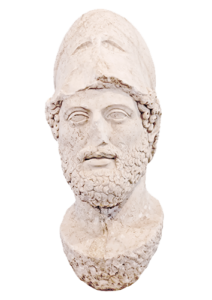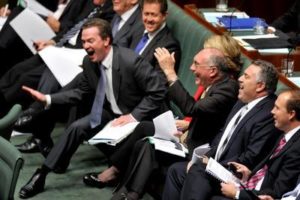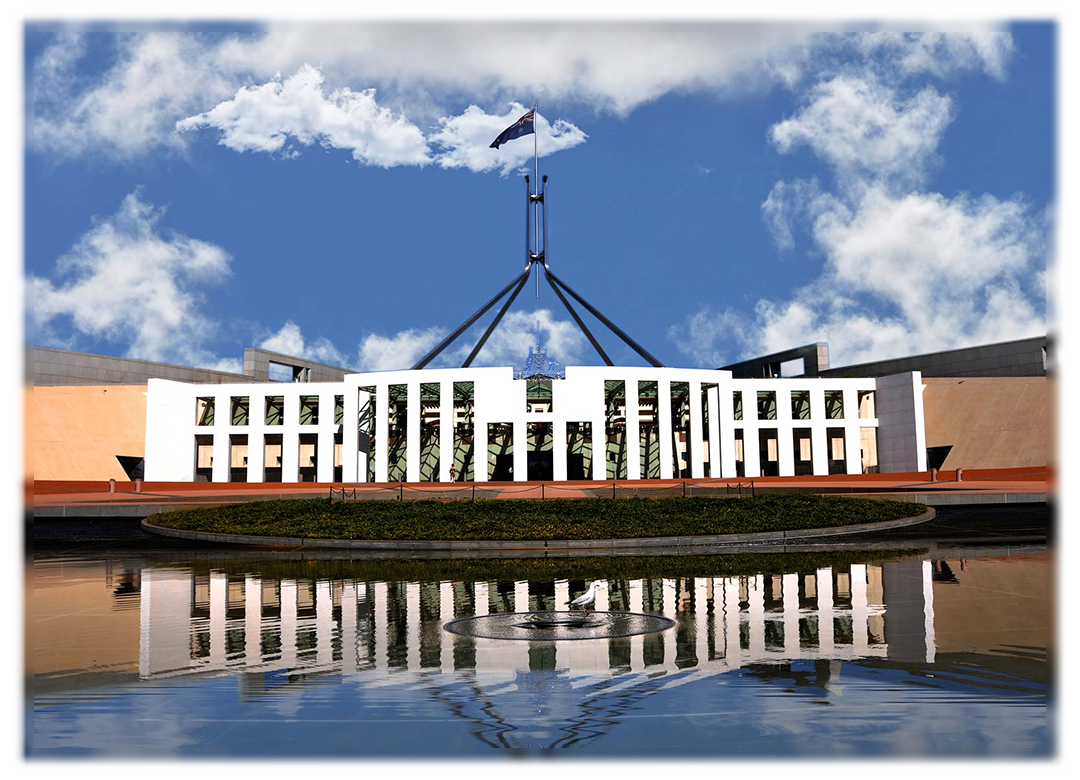Democracy is the worst form of government, except for all the others. – Winston Churchill.
When the Greek noble man and poet Solon sought to alieveate the sufferings of the poor in ancient Athens, 594 BC, he tried doing so without removing the privileges of the rich. He advocated the establishment of the Ecclesia – an assembly where all male citizens were allowed to voice their opinions and to vote on who should govern, pass laws and decrees, and function as the highest court of appeal.
 Later refined by Pericles, making even the poorest classes eligible, the Ecclesia had up to 6,000 participants. Not bad for a (male) population of 40,000! The Ecclesia also established the “Boule of 500”, a representative body that governed on behalf of the people, but whose representatives could be re-elected only once, and could be removed at any time by the Ecclesia.
Later refined by Pericles, making even the poorest classes eligible, the Ecclesia had up to 6,000 participants. Not bad for a (male) population of 40,000! The Ecclesia also established the “Boule of 500”, a representative body that governed on behalf of the people, but whose representatives could be re-elected only once, and could be removed at any time by the Ecclesia.
It was over 2,500 years ago, but it remains the fundamental principles of which democracy is based. Since then, democracy as we know it has become rather more inclusive, minimum age and citizenship the only entry criteria, and it is the system of choice for all of the world’s sovereign countries that are not ruled by dictators. As an idea, Democracy may well be the most enduring of all of humankind’s fictions.
Apart from becoming all inclusive, a process that amazingly took almost 2,500 years (Switzerland was the last country to allow women the vote in 1971), the other major change was the move away from a direct democracy to the indirect system we know today, in turn predicating the introduction of political parties.
The indirect model of democracy – where voters give away their democratic power to an elected representative for a set (more or less) period – made sense as men and women evolved from living in relatively small communities to becoming citizens of countries with millions of people.
When people lived within the walls of the same city, communication was relatively easy and relied mostly on oral debate and decrees literally cast in stone. But as city states turned into countries relying on word of mouth and stone tablets became impractical. Governing more people became reliant on effective power structures and efficient communication at the cost of direct constituent participation.
And with the advent of “modern” democracy, as heralded first by the Magna Carta in 1215, and, 573 years later, the American constitution, political parties became the uninvited custodians of indirect democracy.
Thomas Jefferson, one of America’s so called Founding Fathers and the primary author of the Declaration of Independence, warned against parties shortly before he died. He was not alone in that sentiment among his peers, including the first president, George Washington, whose rule was deliberately non-partisan.
The American Constitution does not have any reference to the existence or merit of political parties, nor does the Constitutional Conventions of England, the cradle of party politics. Indeed, party politics does not get a mention in the constitutional documents of any true democracy. Some (not so democratic) Arab states mention the illegality of forming political parties, and some micro countries such as Nauru and the Solomon Islands don’t have them, but in the majority of democracies, political parties have become the de facto rulers of the democratic system.
But we, the electorate, no longer trust them. Or rather, we do not trust politicians. In surveys of the trustworthiness of various professions, politicians is generally on par with real estate agents and car salesmen, they talk a lot, say little, and can’t be trusted.
 For those who can endure it, this is particularly evident during televised sessions from parliament. The debate is rarely about ideas. Beyond the maiden speeches of parliamentarians, the political discourse is generally puerile diatribes about why the opposition is wrong, incompetent or lying. Juvenile shouting matches which your average kindergarten bully would be proud of, is on display during parliament question time on a regular basis.
For those who can endure it, this is particularly evident during televised sessions from parliament. The debate is rarely about ideas. Beyond the maiden speeches of parliamentarians, the political discourse is generally puerile diatribes about why the opposition is wrong, incompetent or lying. Juvenile shouting matches which your average kindergarten bully would be proud of, is on display during parliament question time on a regular basis.
This is also a sad reflection on the way the two major parties in Australia operate. Apart from their names, Labor and Liberal, their ideological platforms are indiscernible from each other. Bill Shorten may use phrases such as “working families” where Malcolm Turnbull talks about “Australian families”, but neither speak in terms of ideas or portray any strong belief in any named ideology. Their modus operandi is as simple as it is reprehensible, to oppose each other almost regardless of substance.
Parties made some sense when the differences between, say, a socialist and a conservative could be described in meaningful ideological terms that people could relate to, based on their background, financial status, employment and to some extent religious beliefs. But these delineations are no longer what people care about. We (at least in what we call the “Western” world) pretty much unanimously accept that we live in a mixed economy where the state has significant influence on markets, where social services such as unemployment benefits, Medicare and a minimum standard of living is an expected right, and where religion is an individual’s own choice, not a matter for the state.
The issues have changed dramatically and can no longer be defined within the narrow constraints of some political parties. This is one of the reasons we are seeing the proliferation of parties with a specific agenda, such as the Greens, and even specific issue parties such as the Sex party and the Shooters and Hunters party. A trend that has been obvious in Europe since the seventies, but only belatedly understood down under. Add to this the raise and fall, and recent raise again of Pauline Hanson’s racist rabble party, it paints a picture of a political system in disarray, no longer serving the voters or democracy.
The big issues of today – such as climate change, immigration, protecting the environment, how to deal with globalisation, sustainable growth (which incidentally may be no growth at all), eradicating poverty, ending war as a means of resolving conflict, just to name a few – are not issues that our major parties have dramatically different perspectives on, nor, for that matter, solutions to.
Labor and Liberal politicians harp on about full employment, budget repair, school funding and how the GST should be distributed between states. These are all basic practical issues that can and should be dealt with by any government with the support of a sensible bureaucracy. They are not about ideas or about the long term visions that our leaders should be concerned about.
The gay marriage “issue” served as an example of how party politics work; And not just party politics, but factions within the parties. The idea of a plebiscite instead of putting the issue to a vote on the parliament floor (where it would undoubtedly be resolved in the affirmative) came about merely to appease the right wing faction of the Liberal Party. It was a deal done by a weak Prime Minister (Malcolm Tunrbull) more concerned about his internal power base than what his constituents wanted, let alone what, if anything, he may believe to be right.
The fact is that the major political parties exist purely for their own reasons, not for the benefit of the people they serve. But it it is the “accepted” system that has remained more or less unchanged for 100 years or more, and as such it will be difficult to change. Especially as those who may have a lot to lose from a change are the very same people who needs to make the change happen.
Change is never easy, especially as those tasked with it are by definition opposed to altering the status quo. However, all change starts with the recognition that something is broken. Maybe it is time to go back to the very roots of democracy – one citizen, one vote, electing representatives who are bound by their word, acting according to their conscience, not by a party program they may only partially agree with. Maybe, just maybe, Pericles was right all along?
Or in the words of Edmund Burke – English politician and philosopher of the 18th century, whose eloquence puts him on a pedestal no living politician this side of Winston Churchill come close to – “When the leaders choose to make themselves bidders at an auction of popularity, their talents, in the construction of the state, will be of no service. They will become flatterers instead of legislators; the instruments, not the guides, of the people.”

